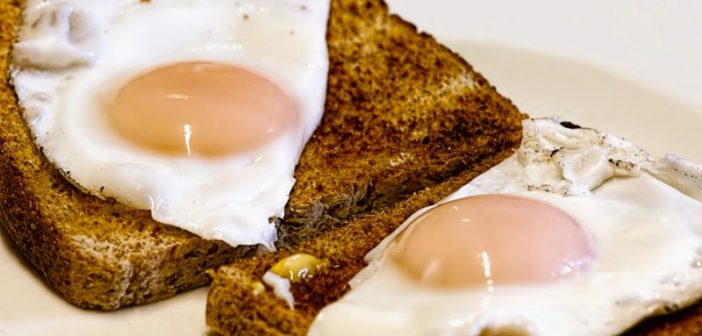How do you like your eggs in the morning? Doesn’t really matter as long as you have one.
New research has revealed that an egg a day can be a seriously beneficial breakfast choice. Researchers, from Peking University Health Science Centre, examined data from 416,213 participants in China and found that chowing down on scrambled, poached or boiled eggs can lower your risk of stroke and heart disease.
Participants in the study, published in the Journal Heart BMJ, were monitored over a period of nine years. Some 13.1% of the people reported daily consumption of eggs, while 9.1% said they never or rarely ate eggs.
The results revealed that those who had an egg a day had a 26% lower risk of a stroke, a 28% lower risk of stroke-related death, and an 18% lower risk of cardiovascular disease death.
While participants who ate an average of 5.32 eggs a week were also 12% less likely to experience coronary heart disease than people who ate around two eggs a week.
Although eggs are high in cholesterol, they contain healthy nutrients that experts say can give heart health a boost. And the good egg news doesn’t end there. High protein levels also help people feel fuller, something that has been linked to helping people lose weight.
Previous studies suggested that high-protein breakfasts (such as eggs) help to control eating later in the day – leaving people less prone to snacking on unhealthy food.
Before you start planning to have egg and soldiers for breakfast, lunch and dinner, researchers have noted that the benefits may only apply to those who have a ‘moderate level of egg consumption’ meaning just one egg per day.
Though the consequences of having more than that aren’t known, (the NHS doesn’t give a recommended rate of egg consumption) eating all the eggs isn’t really conducive to a balanced diet now is it?
Commenting on the findings lead researchers Professor Liming Li and Dr. Canqing Yu said: “The present study finds that there is an association between moderate level of egg consumption (up to one egg/day) and a lower cardiac event rate.
“Our findings contribute scientific evidence to the dietary guidelines with regard to egg consumption for the healthy adults.”
The study is observational so doesn’t offer concrete proof that eating eggs can protect against heart disease or stroke, but a large number of participants does seem to hint that eggs should maybe get a break from their bad ‘high cholesterol’ press.
Particularly as the potential heart health benefits may be more significant than the high cholesterol risks.




